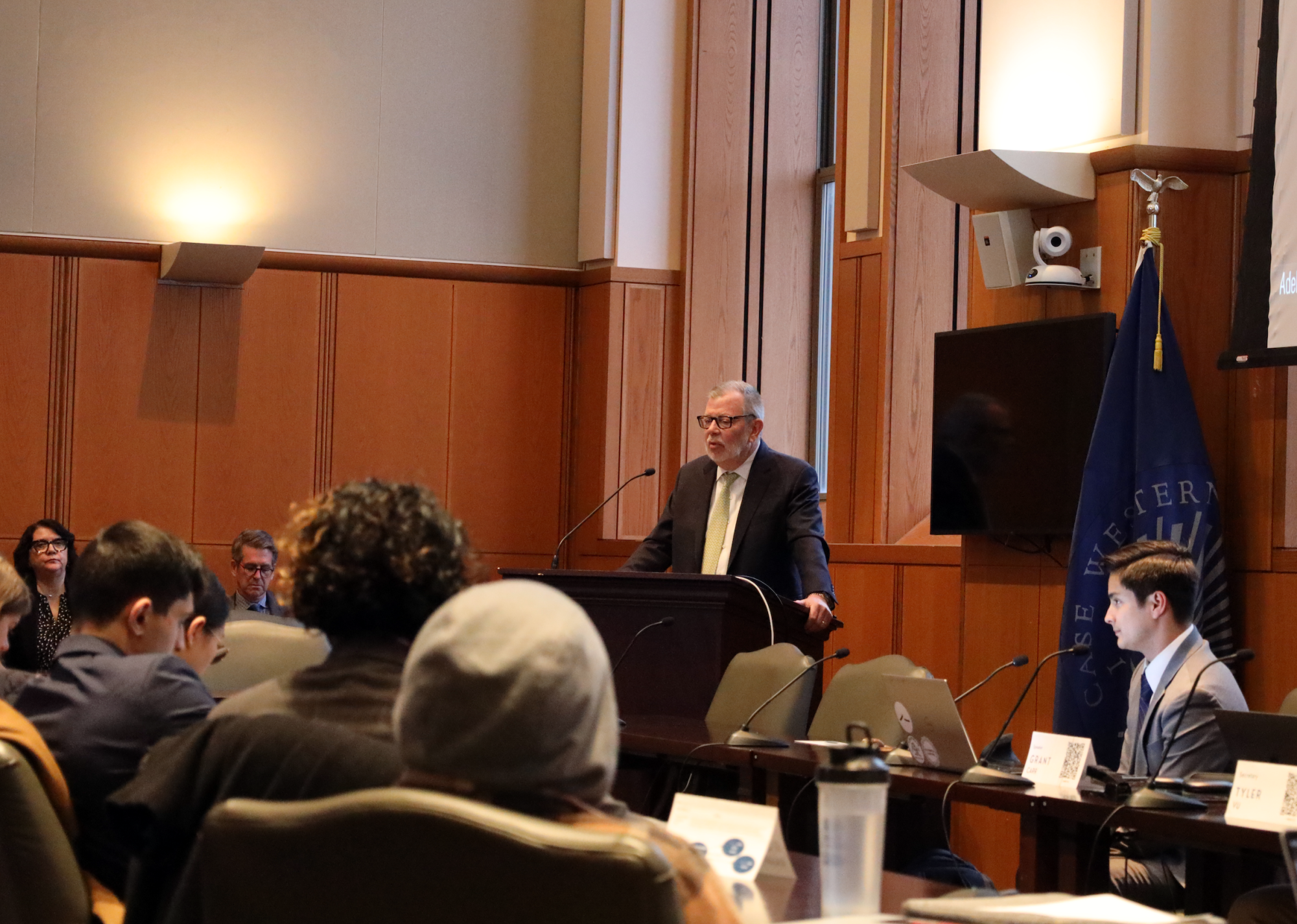Following the interim suspension of Case Western Reserve University’s chapter of Students for Justice in Palestine (SJP), President Eric Kaler addressed students’ concerns at the March 19 Undergraduate Student Government (USG) meeting via an open Q&A.
Regarding SJP’s interim suspension due to allegedly gluing flyers around campus and violating the Student Code of Conduct, Kaler emphasized that the Spirit Wall is solely for painting, though the interim suspension was because of SJP’s lack of response to the student conduct process.
“The content of what was on those paperings was not the reason why SJP was suspended. It was because of a lack of response from the individuals after we requested them to come in to talk about the issue at hand,” Kaler said. “The suspension doesn’t involve the issue of what was on the posters. It was a violation of our conduct code of how things could be posted. If a Jewish group did the same thing, gluing flyers to signs, that group would be suspended as well. I don’t feel this is an uneven hand in any sense.”
According to Kaler, the “least destructive” action was to impose the interim suspension with the offer for SJP leaders to speak with the Office of Student Conduct about what happened.
“If we have a conversation, we understand what happened, responsibility is taken, then you don’t need a hearing,” he said, addressing students’ concerns about transparency in the conduct process.
Kaler also addressed transparency and accountability in the university’s operation as an entity.
“There is nothing more important to me than being transparent and accountable in the administrative operation of the university,” Kaler said. “As we manage the place the deans and vice presidents work together, we need to be transparent and we need to hold each other accountable.”
Faculty input is facilitated through the Faculty Senate that meets monthly with Kaler.
“The faculty view of the inner operations is really crystal-clear. The way that students see is through interactions with the Office of Student Affairs and interactions with the student government and student leaders of the institution,” he said. “I have been at several places in my career … and I believe this is a pretty highly transparent place to the degree that we can be legally and in terms of confidentiality.”
Kaler also addressed student involvement in university projects. Students are not currently involved in the AI Taskforce—a 30-person taskforce formed by Provost Joy K. Ward in partnership with the Faculty Senate—but might be later.
As part of a larger goal to expand research, Kaler hopes to spend $600 million in annual research expenditures. In the past three years, CWRU has spent $554 million. The university also will be hiring 100 new faculty members over the next four to five years, which he noted will increase the presence of on-campus research opportunities. A large portion of the current capital deployment is for the construction of the Interdisciplinary Science and Engineering (ISEB) Building.
“We wanted to create more research opportunities for student growth and increase those opportunities for student growth in research,” Kaler said when asked about student involvement in the ISEB. “I would say we did not consult very much with students about whether or not that was a good thing—we just all agreed it was.”
Regarding his short- and longer-term goals for the university, Kaler highlighted expanding CWRU’s research capacity and connecting with the local Cleveland community. CWRU recently expanded its Cleveland Scholars Program, so the cost of attendance will be covered for students in the Class of 2028 and onward who are accepted from East Cleveland school districts and city schools. The university is currently renovating former homes on Wade Park Avenue to build the Wade Park Community Engagement Center. For the incoming Class of 2028 and onward, CWRU expanded the class size to 1550 students, which Kaler said will be the carrying capacity once the new South Residential Village buildings are completed in August.
He said, “We are looking to elevate academic excellence, expand research enterprise and enhance communication with our neighbors and community.”



